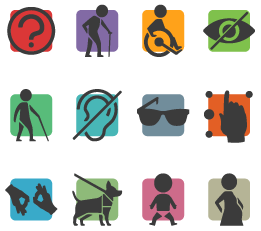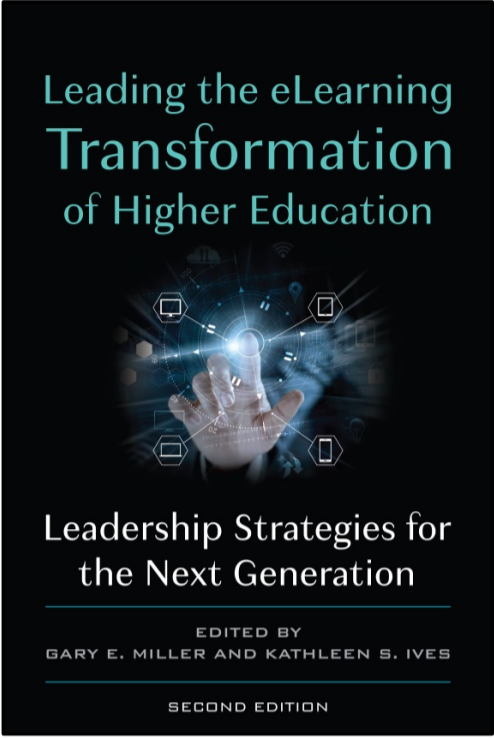Teaching Online Resources
Resources for Teaching Online
3/17/20
3/18/20
3/19/20
3/20/20
In an effort to support instructors and students as they transition to distance education, F.A. Davis has granted students free access to open resources on FADavis.com. This will allow students who don’t have Access Codes to make use of all relevant resources by following the steps below:
Tips for Inclusion and Equity in Online Teaching with Professor Chris Barcelos3/24/20
Any resident of MA can get a BPL eCard which includes access to lots of stream and downloadable movies you can use for classes (or for long stints at home).
The Best Zoom Tips & Tricks Everyone Needs to Know | Digital Trends
https://www.digitaltrends.com/computing/best-zoom-tips-and-tricks/
Common Problems with Zoom Videoconferencing, How To Fix Them | Digital Trends
https://www.digitaltrends.com/computing/common-problems-with-zoom-and-how-to-fix-them/
Online discussions can be a great way to help your students stay connected when learning remotely. Offering your students opportunities to discuss course content creates an interactive social learning environment for shared exploration.
This includes a good reminder:
Consider Issues of Access, Inclusion, and Equity
Since working in remote learning environments is new to many of us, we need to be aware that some students may struggle more than others. Also, keep in mind that not everyone will be able to work remotely from a comfortable, private, and quiet space. In addition, some of your students may have:
To help you identify your students’ unique needs, check in with your students individually or consider sending them a survey to find out what is doable for them during this time of disruption.
A free platform called JamKazam seems to be used for giving lessons, playing in real time with other musicians, and learning songs.
Today I explored Google Chat and Google Meet (similar to Zoom). They seem like tools with great possibility and Google Meet does not have the time limitation that the standard Zoom license has. It also has a great closed caption function that transcribes what you are saying in real time. Wow!
FYI, it took me a little bit to figure it out, but you can schedule Google Video conferencing through the Google Calendar app.
We (faculty and staff at GCC) all now have access the Google education suite. You can sign into your account at Google.com using your GCC address and password (look in the top right corner of your screen).
OBS Studio is a free and open source software for video recording and live streaming. Great for Facebook Live or other kinds of live streams, or also a simple recorder for basic pre-recorded videos, particularly if you want to use external microphones, cameras, etc.
This is for students younger than community college students (usually), but for 13-17 year olds who want to join a group to talk about solidarity and the social economies, Dr. Caroline Shenaz Hossein from York University has set up Community Economies for Kids Everywhere.
The Mass Cultural Council shared these tips on staying connected online, including virtual tours of museums and sharing project ideas.
A nice list of resources for artists and art instructors including an Online Art & Design Studio Instruction Facebook Group, and 5 Tips for Teaching Art Online from RISD.
Yamaha has a nice range of resources for teaching music online including: How to teach instrumental lessons online, online teaching for the non-online teacher, music theory lessons and games, etc.
A group has started a reading list of articles about the pandemic and its impact on class and labor, social toll, future, economic policy, the anthropocene, capitalism, etc. Lots of international articles in multiple languages as well.
The publisher is offering free access to digital materials, eBooks, tutorials, and more.
From the Program for Teaching East Asia at the University of Colorado, Boulder.
A lot of us are using Zoom these days. Here are some basic and slightly advanced (Touch up my appearance setting!) tips from the company.
A free webinar, Strategies to Effectively Engage Students in Online Learning: a discussion of best practices.
From Inside Higher Ed "'Zoombombing' Attacks Disrupt Classes"
An article from the Chronicle of Higher Education, "10 Tips to Support Students in a Stressful Shift to Online Learning." I particularly like the sentiment, "In times of disruption[...] relationships matter more than ever."
"8 Recommendations for Universities and Professors During the Coronavirus Pandemic" is mostly commonsense at this point, or pretty general. But a decent little bit about shortening assignments and being innovative with assignments.
This article, "Fostering Student Success Outside of Online Class," is aimed more at student affairs, but the ideas can also be applied to the classroom... surveying students about how they are doing and where they are finding challenges, holding open office hours, etc.
Here's a page of links with resources and information to help community colleges and students. Some of these you've seen before, but in case you are looking....
"How to Rethink Science Lab Classes" some general ideas conceptual and broader.
A series of webinars on using and integrating OER:
Beyond affordability: potential of OER - Wednesday, April 15 at 12 p.m. CDT
Modifying content to fit context with OER - Thursday, April 16 at 11 a.m. CDT Defining ed tech features and value - Wednesday, April 22 at 12 p.m. CDT Our ed tech journey - Friday, April 24 at 11 a.m. CDT Aligning OER with campus priorities - Monday, April 27 at 12 p.m. CDT Updates on textbook affordability - Wednesday, April 29 at 10:30 a.m. CDT
"The New Accessibility," a free booklet on accessibility and access to technology for students with disabilities.
"Adjusting to Remote Learning at Community Colleges," an interesting article with different community college faculty sharing thoughts about their adjustment to remote learning/online.
April 14, 12-1:15, a Zoom lunchtime panel for organizations wanting to offer online programming... and how to do it well. I think this would be good for departments too who want to put on reading, visiting speakers, etc. in a time of social distancing.
"7 Ways to Improve Your Online Discussions: White Paper" an attempt to encourage engagement in online discussions.
If you have an iPhone or iPad there is this: creating engaging videos using the app Clips. Seems simple and easy to use. Find the app here.
From AAC&U:
Friday, April 17th at 2PM: "Designing High-Impact Practices for Equity and Impact in New Contexts." Now that we've shifted to remote learning/online, how do we maintain a focus on equity in the new modality?
From Magna:
"Trauma Informed Pedagogy: Teaching in Uncertain Times." A free webinar with the coupon code:428MOS.
4/14/20From Gary Ackerman:
Tips for adding content into Moodle (only works for GCC folks with Moodle access).
From the Harvard Graduate School of Education:
From a new webinar series, Education Now: "Socially distant--and more connected than ever" about the concrete and protective powers of human connection as a way to sustain our families, our educators, and ourselves through this uncertain time.
From Inside HigherEd:
An article "Remotely Hands-On: Teaching lab sciences and fine arts during COVID-19." Some successes, and challenges for trying to teach these disciplines online.
5 Tips for Teaching Studio Art Online:4/15/20From Pearson:
Tips for building your course in an LMS (Learning Management System like Moodle). Pretty basic things, but if you've never taught online, this can be helpful.
4/22/20From Harvard Business Publishing:
"10 Ways to Help Your Students Cope with the Transition to Virtual Learning" I particularly like, give voice to the trauma of what is happening, recognize the psychological impact of screen-only learning, and trust your students.
From Anne Wiley:
One resource I found helpful was attending webinars by ACUE. How to use zoom, how to do micro lectures, how to encourage reading. You can find all five videos of their professional development at: https://acue.org/online-teaching-toolkit/
4/23/20From LinkedIn:
"Suddenly Teaching Online? Free Resources to Help Faculty Affected by Coronavirus," an list of "courses" that are free covering basics and some more specific applications.
From Teaching Tolerance:
As Ramadan begins, we remind educators that social distancing may make this month especially difficult for Muslim families and students. Here are some resources for teaching about Ramadan.
From Magna Publications:
A live seminar April 27th: Trauma-Informed Pedagogy: Teaching in Uncertain Times. Use the coupon code: 428MOS in the cart for free access.
4/27/20From Flipboard:From Inside Higher Ed:From Anne Wiley:
From the Chronicle of Higher Ed, "What Do Final Exams Mean During a Pandemic?"
From ESRI:
A free course on cartography using ArcGIS Pro!
From the Boston Public Library:
With a BPL card (free for all MA residents), you have access to Lynda.com courses in business, software, technology, and creative skills. If there's something you were hoping to brush up on, or up skill over the summer, this could be a great resource!
4/29/20From It Gets Better:
It Gets Better designed a series of EduGuides focused on LGBTQ+ topics. It seems like a great resource/starting point!
From Inside Higher Ed:
"An Argument for 'Remote' Rather than 'Online' Instruction," an argument for synchronous class meetings, despite Zoom fatigue.
5/4/20From OpenStax:At OpenStax, we’re committed to working towards a future where anyone can learn anything without restriction. In keeping with this philosophy, we are excited to announce the launch of two textbooks created specifically for high school students and teachers. These two titles, Physics and Statistics, are both available on our website now and you can learn more about how they were developed on our blog.From Academic Impressions:
We've never had a term quite like this, and how we close our classes this semester matters. For some students, their classes may have been their most consistent and stable community during this time of rapid change and abrupt isolation. This article offers tips and techniques for approaching the last day of class in ways that provide both closure and connection.
5/6/20From Jenzibar:From University Business:From Jamf:
In our e-book, we identify five ways you can best serve students and teachers when you move learning online. We cover how to:
From Harmonize:
We have created the Improving Student Engagement in Online Courses guide to help you solve these challenges. In this guide, you’ll find eight strategies to ensure online courses transcend the screen to become rich academic communities, including:
5/11/20From Inside Higher Ed:A Plan for Resisting Zoombombing: Carlton E. Green provides advice for how to best respond to an incident and care for the people who have been impacted.5/12/20From the GCC Library:
Our Moodle page for you is now available! Many thanks to Gary for getting the structure and access for you all. In the future, you can find it under the “GCC Links” dropdown menu at the top of Moodle, just under Gary’s site.
The first time you use it, you will need to self-enroll (ask a librarian for the password). Once you have access, you will be able to import anything from our Moodle page to any of your own courses.
From Tim Dolan (for GCC faculty):
We're offering a Zoom training entitled "Open Educational Resources in the COVID Era." If you attend the session and agree to write a review of an OER textbook in your discipline, you'll be eligible for a $200 stipend. By reviewing, you don't make any commitment to use that textbook in your course, though of course you'll have that option.
A flyer with more information and a registration link is attached to this email, and the 2-hour training will be offered on two dates in May:
From Alyssa Arnell:
[I (Leo) went to this conference in person years ago and thought what California was doing really pushed the envelope of what we could teach online. I'm sure we can learn more from them! Thanks, Alyssa!] The California Community Colleges Chancellor’s Office and TechConnect have decided to move the premier face-to-face 2020 Online Teaching Conference to an online event. Although we regret not being able to come together in person, we are excited to present OTC’20 as a multi-day event at no cost to our attendees. Register Now for OTC’20)
From the AAC&U:Let’s Start with “How Are You Doing?”: How Resilience and Hope Can Shape a New Normal for Learning and Teaching
May 15, 2020
Online, 2:00-3:00 p.m., ET
The ongoing disruption of higher education has provoked significant anxiety in students and faculty. It has also presented new challenges and opportunities to support students’ and faculty members’ social-emotional learning and psychosocial needs. As campus leaders at all levels anticipate the implications of the “new normal” for the fall semester, how should they be thinking about the intersections of learning, well-being, and resilience? What are the mechanisms for encouraging hope and resilience inside and outside the classroom, and across stakeholders? This discussion-based webinar brings together national and international experts to explore ways campuses can support students and faculty not merely to survive in challenging times, but to thrive.
From Pearson:
"Moving labs out of the laboratory" When teaching a science class, we often use experiences in the lab to foster critical thinking skills and reinforce the concepts we introduce in lectures. But with campuses closed, students cannot access the lab.
So what do you do? This is what one study published by the Journal of Formative Design in Learning tells us. 5/13/20From Watermark: Join us for a panel discussion where leaders of online institutions and programs will share their guiding principles, best practices and helpful advice that those new to remote learning and instruction can apply this year and beyond. Join us for a panel discussion where leaders of online institutions and programs will share their guiding principles, best practices and helpful advice that those new to remote learning and instruction can apply this year and beyond.Our panelists will share:
5/14/20From the Massachusetts History Alliance:Getting Good Programs Online FastTalking it over with Susan Grabski and Stacen GoldmanMuseums and historical seems to be pulling content out of a hat and putting it online faster than you can say "corona." What's their secret? What's your secret? The Commons team will will be joined by Stacen Goldman of the Framingham History Center and Susan Grabski of the Lawrence History Center. They will tell us what they are up to, we'd love to hear what you are doing. Friday May 22, 1:00-2:30 pm REGISTER HERE From Diverse Issues in Higher Ed:"Online Education Offers New Ways to Identify and Support At-Risk Students"After colleges hastily moved online in response to the coronavirus, higher education leaders worried for low-income students and students of color. Research shows that underrepresented students experience performance gaps and lower retention rates in online courses under the best of circumstances, let alone in a global pandemic.
But remote education experts have highlighted a possible silver lining. Online education provides new ways to identify students at risk of dropping out and opportunities to offer targeted supports.
From Inside Higher Ed:
Tuesday, May 19th at 2:00 pm ET In this interactive presentation, academic and technology leaders from a range of colleges and universities discuss how their institutions and instructors kept students on their educational paths as COVID-19 shut their physical campuses, and how what they’ve learned from those experiences will shape their plans for instructional delivery this fall and beyond.
From HigherEd Jobs:
"Priorities, Questions, and Challenges of Teaching Online:" The unexpected demands that many faculty are facing now are as novel as the virus that created them. For some faculty, it may be the first time that they've been asked to deliver their course remotely. For others, even including those with online teaching experience, the underlying stress of balancing competing demands in uncertain times can weigh on them. This month we talk to John Oppenheimer, an instructional designer/technologist at the University of Wisconsin-Madison, who provides advice on how faculty can successfully navigate the transition.
5/18/20
Diverse: Issues in Higher Education
Research shows that underrepresented students experience performance gaps and lower retention rates in online courses under the best of circumstances, let alone in a global pandemic. But remote education experts have highlighted a possible silver lining. Online education provides new ways to identify students at risk of dropping out and opportunities to offer targeted supports
5/20/20Today's Online Teaching Tips:From Teaching Tolerance:Supporting Students Through CoronavirusWe’re grateful to educators continuing to support students and families through the COVID-19 pandemic. We’ve developed resources to support student well-being and learning during closures, including articles about culturally responsive teaching, addressing coronavirus racism and more. We’ll keep this page updated as we publish new pieces.From The New York Times:
From University Business:
I would like to invite you to our upcoming web seminar on Thursday, May 21 at 2:00 ET, entitled
From the Online Learning Consortium:
5/21/20Today's Online Teaching Tips:From LinkedIn:From Campus Compact:
From Kaltura:
It's time for online learning to evolve.
In every crisis is an opportunity. This is a chance to take education forward. The trends that have been gathering steam - self-paced learning, greater personalization, active and interactive learning, analytics, competency-based education - are trends that can help us overcome the current situation.
In the whitepaper "Taking Higher Education Virtual: Setting Yourself & Your Students Up For Success," explore how to take advantage of some of the emerging trends and technologies to make sure that your school successfully serves its students, no matter what happens in the next few months.
Let’s see how.
May 26, 2020From Pearson:
Pearson is making
May 27, 2020From ACPA:
1 June 2020 @ 2pm EDT
Online Teaching and LearningTeaching, Learning and Advising in A Virtual Environment with a DEI Lens This conversation will focus on the importance of preparing virtual environments for greater inclusion. As an academic, student organization advisor, or classroom teacher, how will you prepare the space for student success? GCC Writing Tutors searched for information regarding online teaching, and they shared their own suggestions, based on their experiences in online courses, as well as the experiences of students they tutored. Below is a brief summary of their findings. See also “Online Learning: Tips for Students,” posted on the Peer Tutoring webpage. From Chang:
Communication: Clarity and Frequency
From It Gets Better:Our EduGuide for the Academy Award-winning film Moonlight is now available in Spanish. Click below to access both theFrom Higher Ed Jobs:
From Colleen Caffery, GCC's Coordinator of Disability Services:From Cindy Snow, GCC's Co-coordinator of Peer Tutoring:
I've shared this before, but now in an improved PDF format! Tips from Peer Tutors for more effective online teaching.
From Bowdoin College:From Faculty Focus:June 2, 2020From Academic Impressions:
More Resources:
June 3, 2020From Academic Impressions:
Ensuring Quality in Online Instruction
| ||||||||||||||||||||||||||||||||||||||||||||||||||||||||||||||||||||||||||||||||||
June 8, 2020From Sage Publishing:
June 9, 2020From BlackBoard:
From Teaching Tolerance:
From REV:
REV'S FIRST-EVER ACCESSIBILITY WEEK!
Where:
When:
What:
Check out our fantastic lineup!
From Academic Impressions:
From Online Learning:Call for Articles on COVID-19
The Editors of the Online Learning Journal wish to invite researchers to publish in a special issue devoted to the lessons learned about online learning from the COVD-19 crisis, including the challenges faced by teachers and students in the unexpected transition to distance learning, institutional or community supports which helped teachers and students successfully adapt to online learning, and insights to apply as educators move forward with online learning (in both “emergency” and “business as usual” contexts). Visit our website for additional information on the issue, including topics, a timeline, and submission instructions. | |||||||||||||||||||
June 11, 2020
From the Chronicle of Higher Education:
June 15, 2020
From GCC's FITS group:
June 16, 2020
From D2L:
|
June 17, 2020
From Alyssa Arnell, GCC's History Dept. Chair:
The Virtual Valley: Last-Minute Tools and Strategies for Online Classroom Education
Greenfield Community College and local partners are seeking proposals for individual, small group, and panel presentations for the 2020 Western Mass Virtual Valley Online Conference, to be held on Thursday, August 20, 2020. This free one-day conference is an important opportunity to bring local educators together to share, learn, and inspire each other as we head into the fall term in online learning environments.
The theme of the 2020 conference is “Last Minute Tools and Strategies for Online Classroom Education.” As many prepare to teach in the fall, this conference is designed to provide ways to assess and review online classroom content as many of us prepare to each in online in the fall. Please come, participate, and share your knowledge.
Proposed sessions should reflect the theme of the conference and speak to a broad audience of educators from across disciplines and from high schools to community colleges. Our conference tracks include:
- Online Technology in the classroom
- Fair use, privacy, Section 504 compliance
- Classroom equity
DEADLINE: July 10th, 2020 Submit your proposals by completing the form available HERE
Please direct your questions to Alyssa Arnell at arnella@gcc.mass.edu.
From John Nordell:
One of my students found this site where you can create your own virtual museum/gallery:https://www.artsteps.com/explore
From Inside Higher Ed:
This actually seems like a really cool article!
‘We’re All in This Together’
Most instructors were novices in a new environment last spring,
and many sought help. In preparation for fall, colleges and others
share their expertise freely. Here are some new initiatives.
From YouTube:
| We’ve just launched a series of bundled learning toolkits on the Creator Academy with topics ranging from Pivoting your Content, to Going Live, to Production, and more. Check them out to get the support and ideas to help you manage and optimize your channel in this fast changing environment. | |
|
From Magna:
|
|
Also from Alyssa Arnell:
June 18, 2020
From REV:
Rev’s First-Ever Accessibility Week
Join us June 22-26 as experts discuss Covid-19,
ADA compliance, and everything in between
From Higher Ed Jobs:
| June 18, 2020 | |
|
From Cengage:
|
|
June 22, 2020
From Google:
From NPR:
June 23, 2020
From Pearson:
Start here to master the essentials of online teaching
You and educators around the world are being asked to rethink what learning will look like for millions of students — this Fall and in the future. And the only thing we do know about the Fall term is that none of us know quite what to expect.
That means you’re also tasked with planning for every possible scenario, including fully online learning, smaller class sizes, flexible schedules, HyFlex models, and intermittent campus closures. On top of that, you’re looking for ways to help ensure you and your students not only cope, but thrive under these new circumstances.
No matter what your plans and concerns are, or how they might change from day to day throughout each term, we can help you prepare.
From ConexED:
|
From Magna:
|
|
From Invoke Learning:
Insights from America's first fully-online college experience: Part 2
June 24, 2020
From OpenStax:
Student interns on their experiences, perspectives, and OER knowledge
Ever wonder what students really think about open educational resources?
Register now!
Ever wonder what students really think about open educational resources?
Register now!
From Inside Higher Ed:
Reflections on the Invisible Labor of Online Teaching » Given the rightful fear and anxiety that our students are feeling, online instruction has opened a portal for them to seek therapy-like consultations from professors, writes Irina Popescu. |
A Day in the Life of a Remote Instructor: Fall 2020 » Jenae Cohn envisions how the term may unfold for a faculty member who remains off campus in September.� |
A Day in the Life of a Remote Undergraduate Student: Fall 2020 » Beth Seltzer envisions how the term may unfold for a student who remains off campus in September. |
From Echo:
June 25, 2020
From the Online Learning Consortium:
July 16, 2020
From Education Admin Web Advisor:
|
From the Chronicle of Higher Ed:
Collaborative Note-Taking
Students come to Brielle Harbin’s introductory American-government course with a wide range of background knowledge. Some passed the Advanced Placement exam, while others haven’t studied the topic since they were freshmen in high school. That leaves Harbin, an assistant professor of political science at the United States Naval Academy, looking for ways to level the playing field.
One approach she’s found helpful is collaborative note-taking, in which students rotate note-taking responsibilities in a shared Google document (Harbin has the rest of the class take their own notes by hand). As Harbin describes in a recent article for College Teaching, the approach has several benefits. It strengthens students’ note-taking abilities, in particular letting those with less background learn from their classmates. It gives Harbin, who creates and owns the note-taking document, a window into how well students understand the material throughout the term. That’s especially useful at a service academy, she says, since students’ schedules make it hard for them to attend office hours.
From Campus Technology:
Tips and Tools for Managing the Sudden Transition to Online Learning
Sponsors: Lenovo, Connection, Kivuto and OpenStax
Innovations in Remote Learning
Sponsors: Lenovo, Connection and Kivuto
From Magna:
From Invoke Learning:
Here are links to all posts in this series:
Insights from America's first fully-online college experience: Part 1
Insights from America's first fully-online college experience: Part 2
Insights from America's first fully-online college experience: Part 3
Insights from America's first fully-online college experience: Part 4
July 21, 2020
From the Online Learning Consortium:
OLC Ideate Labs for Online STEM Virtual Event
Make plans to join the OLC/MERLOT freevirtual expo, showcasing a wide range of virtual and distance labs designed to support online STEM education, offered by both commercial and open educational resource (OER) providers. OLC Ideate Labs for Online STEM: Innovating STEM Education 2020 event on August 19-21, 2020.
Registration opens later this week! Save the dates for this free, virtual event! Learn more.
Pedagogical Considerations for Instructional Video Conferencing Sessions
Remote instruction via video conferencing offers an engaging, quick shift to virtual facilitation in today’s unprecedented circumstances," said Amanda E. Major, EdD, CPLP, PMP and Tommi Barrett-Greenly, EdD, in a recent blog post. "This is a time when we, as educators, can use a powerful learning tool like video conferencing to effectively reach and teach our students, while providing meaningful and effective instruction." Learn more.
From Academic Impressions:
August 7, 2020 | Virtual Training
Learn how to shift your mindset and practices so that you don’t exclude your students and limit their learning.
Practicing Culturally Relevant Pedagogy in Higher Education
September 16 - 17, 2020 | Virtual Conference
Take action to examine your knowledge base, unpack biases, and make your classroom and materials more inclusive.
- Building Inclusive Pedagogy Online | Webcast Recording
July 22, 2020
From Gary Ackerman:
For the last month or so, the MA community colleges that use Moodle have been hosting "Moodle Monday" workshops that are open to participant from all campuses.
On August 3, I will be hosting one entitled "Creating Accessible Materials" in which I will demonstrate tools for ensuring your videos and documents meet ADA requirements.
Find details here: https://online.gcc.mass.edu/mod/page/view.php?id=384789
From the Online Learning Consortium:
OLC Ideate Labs for Online STEM: Innovating STEM Education
The Online Learning Consortium and MERLOT would like to invite you to our OLC Ideate Labs for Online STEM: Innovating STEM Education 2020 event on August 19-21, 2020.
This free virtual expo will showcase a wide range of virtual and distance labs designed to support online STEM education, offered by both commercial and open educational resource (OER) providers. This event brings educators and providers together, not only offering expert guidance on how best to deploy the different types of virtual labs to achieve successful learning outcomes, but also in centering educator use-case virtual lab stories.
Event Details: The upending impact of the COVID-19 outbreak upon higher education has created an immediate demand for delivering laboratory experiences in online settings. This event will foster conversations, exploration and relationship-building between higher education leaders and established online labs providers, organized around 4 strategic themes/questions:
- WHY CONSIDER VIRTUAL LABS? If you are just getting started, what are the unique affordances of digital, virtual, and distance labs and strategies for intentionally incorporating them into STEM educational spaces into the future?
- HOW TO GET BUY-IN FOR EXPLORING VIRTUAL LABS? How do you center engagement, welcome exploration/failure, and ensure quality within virtual, digital, and distance labs, so people can try these innovations?
- HOW DO YOU PLAN FOR SUSTAINING SUCCESS WITH VIRTUAL LABS? How do you connect with stakeholders to discuss policy, resources, training, and the relationship between innovative virtual / digital / distance content and certifying / governing / professional bodies?
- HOW DO YOU SUCCESSFULLY IMPLEMENT VIRTUAL LABS? What are demonstrated strategies for implementing virtual, digital, and distance labs with sustainability, affordability, accessibility, and equity in mind?
In the next few days we will be issuing a Call for Presentations for this event, so watch your email and the OLC website for that!
The full program for this 3-day event will be posted once it has been finalized. But go ahead and register now - it's free!
Join this collaborative community dedicated to innovative STEM education and register today for this free, virtual event! Learn more.
From EducationAdminWebAdvisor (what a friggin name):
|
From Inside Higher Ed:
Teaching With Technology, Technology, Transforming Teaching & Learning
Snapchat, Instagram and Other Unexpected Guests in Class
Kevin Dougherty and Jesse DeDeyne documented how students used their cellphones during a sociology class last fall (spoiler: texting friends and checking Snapchat) and discuss how they'll change their teaching in response. »
From Academic Impressions:
From The Key podcast from Inside Higher Ed:
To get some answers to these tricky questions, we spoke with Lori Williams, president and CEO of NC-SARA. Williams discussed ideas from an opinion piece she wrote for Inside Higher Ed on the role for states in quality assurance in online education.
We also spoke with Marni Baker Stein, provost and chief academic officer for Western Governors University. Stein spoke about how the large, online and competency-based university has worked to help its students cope with disruptions, as well as her outlook for the fall and the potential for short-term programs.
July 23, 2020
From Magna Online:
|
|
|
|
|
|
|
|
|
|
From Pearson:
Staying home doesn’t mean going it alone
An online-only environment can feel challenging or intimidating. Explore our tips for helping students get the course support they need while taking online courses.
| Read the article |
July 27, 2020
From Colleen Caffery, Coordinator of Disability Services at GCC:
Some things that we can do to ensure accessibility in the remote environment:
- Follow the principles of Universal Design for Learning—in a nutshell, using a variety of ways to present content, assess learning, and engage with students.
- Make sure that video content is captioned. If you are unable to find captioned versions of the perfect video, I.T. can send it out to a vendor that can add captions. Gary Ackerman has created videos on uploading videos to YouTube and editing the auto-captioning that YouTube creates. https://online.gcc.mass.edu/mod/page/view.php?id=373042
https://online.gcc.mass.edu/mod/page/view.php?id=352670
- Provide transcripts for audio content.
- Create accessible materials—Word documents, PDFs, slide presentations, images (alt text descriptions), etc. Gary Ackerman is presenting a workshop On Monday, August 3https://online.gcc.mass.edu/mod/page/view.php?id=384789
- Use descriptive language for hyperlinks.
Here is an excellent, very comprehensive website for designing an accessible online course: https://exploreaccess.org/accessible-online-course/ Much of the information is applicable to other needs—marketing materials, presentations, website content, and more.
FromYamaha:
Resources for Online Teaching Guide |
We want to do our part to help music educators as you explore options and search for resources to facilitate online teaching. Updated weekly, discover the new resources recently added to our online teaching guide: |
From Academic Impressions:
Responding to Microaggressions in Online Learning Environments During a PandemicArticle | Academic Impressions
With faculty and students both stressed during the pandemic, microaggressions may become more frequent in our online learning environment. Here are some practical strategies for mitigating the impact of microaggressions in online and remote classes. Read more.
Learn more:
- Identifying and Removing Microaggressions | Bundle of 2 Recorded Webcasts
- Understanding and Addressing Microaggressions | Short Video Lessons - Exclusive to Members
From Campus Technology:
Updated: Free and Discounted Ed Tech Tools for Online Learning During the Coronavirus Pandemic
As more and more colleges and universities have shut down their campuses to curb the spread of COVID-19, education technology companies have stepped forward to help move student learning to the virtual realm.
More
As more and more colleges and universities have shut down their campuses to curb the spread of COVID-19, education technology companies have stepped forward to help move student learning to the virtual realm.
MoreFrom Desire 2 Learn:
|
From EducationAdminWebAdvisor (Who names their organization like this?):
|
From The Online Learning Consortium:
Designing Game-Based LearningStarts September 14, 2020Game-based learning and gamification are two very different–if very effective– instructional phenomena. In this workshop, the companion to Designing Gamified Learning Environments workshop, you will implement the theories, principles, and specifically the mechanics of gamification to create your own games on a topic of your choice. By building an educational or serious game, you can leverage the power behind our innate desire to play. Learn more. | |
Designing Courses with a Multimodal ApproachStarts September 21, 2020Through online discussions, student-student and student-content interactions increase, and both faculty and students collaborate in the learning process as they explore unique perspectives. Join an expert facilitator from the OLC Institute in this seven-day asynchronous workshop to learn strategies for engaging learners in effective discussions as well as tools that can be employed to foster learner engagement and improve learning outcomes. Throughout the workshop, you will develop a plan for creating engaging and effective online discussions in your courses. Learn more. | |
July 28, 2020
From EducationAdminWebAdvisor:
|
July 29, 2020
From Magna:
|
|
From ACE Engage:
From the Online Learning Consortium:
Play. Learn. Produce.
"Think about the impact of the COVID-19 crisis on learning. With limitations on face-to-face classes, it is through emergency online mode that instructors were forced to continue their courses. These pivots in learning may be a source of anxiety for both students and teachers." said Dr. Rosh Rupani and Dr. Sreyoshi Bhaduri in a recentblog post. "Introducing elements of play in day-to-day work can help foster innovation and boost productivity." Read more.
From The Key podcast:
Will online offerings from colleges be more sophisticated? What steps need to be taken to ensure academic quality in online learning? To get some answers to these tricky questions, we spoke with Lori Williams, president and CEO of NC-SARA. We also spoke with Marni Baker Stein, provost and chief academic officer for Western Governors University, about how the large, online and competency-based university has worked to help its students cope with disruptions, as well as her outlook for the fall and the potential for short-term programs.
July 30, 2020
From Education Admin Web Advisor:
|
From Academic Impressions:
Views of Online Education During the Pandemic
Report | Strada Education
Among the findings of a new survey:
- Three in 10 Americans say that even if COVID-19 was not a threat, they’d prefer an online-only learning option.
- Recent graduates of programs at online institutions rate the value of their education higher than graduates of other four-year colleges.
- Nearly half of women would choose an exclusively online option if they enrolled in the next six months.
First-Gen Students: Amid the Pandemic, Tales of Determination
Article | CNBC
Lost jobs, lost apartments, a responsibility to care for family members and more - but amid all these challenges, first-generation students communicate a determination to succeed and get their college degree to improve their lives' and their families'. Read more.
August 6, 2020
From Education Admin Web Advisor (really, what is in a name):
|
From Inside Higher Ed:
7 Answers to 7 Questions About Online Education From a Japanese Media Company
How would you answer these questions about the future of digital learning? »
From Magna Publications:
August 10, 2020
From Education Admin Web Advisor (really, sheesh):
|
From Academic Impressions:
August 10, 2020 | Virtual Training
What you need to know before you begin: How to implement virtual and remote labs in fall courses.
From Magna Publications:
|
|
From the Online Learning Consortium:
OLC Ideate Labs for Online STEMLast call for speaker submissions – closing today. |  OLC Ideate Labs for Online STEM August 19-21, 2020 |
Designing with Accessibility in Mind7-Day Online Workshop Begins Monday, August 17 Izabela Mrochen, PhD, | Complete all four of our workshops on the topic of accessibility and universal design for learning and earn your OLC Accessibility Badge. Learn more. |
Begins Monday, September 14 Complete all four of our workshops on the topic of accessibility and universal design for learning and earn your OLC Accessibility Badge. Learn more. | Applying Universal Design Principles to Increase Accessibility and Engagement7-Day Online Workshop Begins Monday, September 14 Dr. Mary Williams, |
From Campus Technology:
MIT Develops Open Source Tool to Support Spontaneous Online Conversations
Researchers at MIT's Sloan School of Management have developed a new software platform for having private, on-the-spot conversations online. Called Minglr, the open source tool is designed to replicate the kinds of interactions people might have before and after meetings, in the lobby during breaks of conferences and around the office coffee machine, in a virtual environment.
More
August 11, 2020
DAY 148, AUGUST 11, 2020
The Great Dance Party
Today's soundtrack: Beautiful Rivers and Mountains: The Psychedelic Rock Sound of South Korea's Shin Joong Hyun, 1958-1974 |
| A cool car at the local nursery. |
 |
| My daughter lighting a candle at All Saints in Sewanee, TN |
From Our Friends:
From Higher Ed Hot Topics:
| ||
|
From Good Docs:
From our Friends at CISA:
CISA is hiring for two positions and we are trying to reach wide and deep and would so appreciate your help in spreading the word.
The two positions are: Communications Coordinator and Program Assistant
And here is a little background on CISA.
Community Involved in Sustaining Agriculture (CISA) is a nonprofit that works with hundreds of local farms and the community to get more local food onto people’s plates. We run the Be a Local Hero, Buy Locally Grown® marketing campaign, outreach around buying local, trainings and workshops for farmers, and programs to increase access to local food. We believe that the local community is essential to successful local farms.
Our team has a range of skills and life experiences and who all believe that a diverse and resilient food economy has viable farms, fair and just working conditions, strong environmental stewardship, and accessible local food in all of our communities. We are committed to understanding the history and current impacts of racism in the food system and actively work towards equity. We are committed to recruiting and retaining creative, ethical, smart, and innovative people.
 |
| Franklin found a little cave! |
Today's Online Teaching Tips:
From Education Admin Web Advisor:
|
August 12, 2020
From Inside Higher Ed:
STEM teaching and learning is a great challenge in higher education. STEM teaching and learning is also the subject of innovation. But only a minority of students are ready for STEM at the college level.
This webcast will explore the issues involved, and look at the efforts of some colleges to attract more students to STEM, including:
- A new approach to teaching physics "energy first" holds promise
- A study argues that class-size debates need more nuance
- Creating well-designed and well-delivered remote learning experiences
From Education Admin Web Advisor:
|
August 13, 2020
From OpenStax:
This year, OpenStax is working with three organizations to host the 2020 Open Education Conference as a virtual event from November 9-3. Designed through a community-driven process, the conference aims to engage diverse perspectives and inspire participants to strive for a future where education is accessible, affordable, equitable and inclusive for all. Sign up below to receive updates for the conference.
The supporting organizations include SPARC, the Colorado Department of Higher Education OER Council and the University System of Maryland’s Kirwan Center, and OpenStax.
Read more
Learn more
August 24, 2020
From Academic Impressions:
How to Boost Student Engagement - Even Online
Blog | Gray Associates
Read what Dr. William Massy, author of Resource Management in Colleges and Universities, has to say. In his new blog post "How to Boost Student Engagement - Even Online,” Dr. Massy discusses different approaches and techniques he has used successfully in the past.
August 25, 2020
From EducationAdminWebAdvisor:
|
From Yamaha:
Socially Distant Team Building |
On the first day of school, students may come to class a bit apprehensive. A fun and socially distant team-building exercise is just a drumbeat away with this guide on getting a drum circle started in your class. |
August 26, 2020
From ACE Engage:
|
|
From Academic Impressions:
September 15, 2020 | Virtual Training
Learn how you can immediately create more engagement in your online instruction, virtual learning communities, and course materials.
Dr. Tasha Souza, Associate Director for Inclusive Excellence for the Center for Teaching and Learning, Professor of Communication, Boise State University |Article
Here are some practical strategies for mitigating the impact of microaggressions in online and remote classes.
August 27, 2020
From Jenzabar Webinars:
From Higher Ed Jobs:
by Russell S. Thacker
 We don't always get a second chance. But this fall, if you are teaching at one of the increasing number of institutions around the United States opting back into online learning, you are eligible for a do-over. With pandemic online learning 2.0 fast approaching, how will you update your next version of online teaching? Here are a few small changes you can make for a more engaging and personal online learning experience.
We don't always get a second chance. But this fall, if you are teaching at one of the increasing number of institutions around the United States opting back into online learning, you are eligible for a do-over. With pandemic online learning 2.0 fast approaching, how will you update your next version of online teaching? Here are a few small changes you can make for a more engaging and personal online learning experience.September 1, 2020
From Academic Impressions:
Cultivating a Professional and Engaging Persona on Your Video Calls - Additional Dates Added!
September 14, 2020 or October 5, 2020 | Virtual Training
Learn some simple ways you can improve the quality of your communication and connections with others online.
Adapt Your In-Person Peer Mentor Program for a Virtual Environment
September 21, 2020 | Webcast
Adapt your peer mentor program to keep students safe and enrolled, regardless of what the academic year holds.
Recognize Student Distress in a Virtual Environment
September 28, 2020 | Webcast
Recognize the warning signs of student distress and understand how to take appropriate action.
From the Macmillan Learning Team:
|
|
|
From Inside Higher Ed:
|
|
From The Online Learning Consortium:
Supporting Your Child With Online Learning: A Free On-Demand Webinar for Parents
Now available free on-demand, share this webinar with parents as a helpful resource in supporting kids with online learning during this incredibly challenging time. A panel of online teaching and learning experts (and parents!) discuss how to manage stress, consider the role of routines and schedules, and gain specific strategies for success.
September 2, 2020
From GCC Librarian Liza Harrington:
How to embed streaming videos in your Moodle course: https://youtu.be/YcVnJTYZKVs. The video is…too long. But again, going for speed/relevancy over perfection. First half is the technical aspect of using library streaming services; second half discusses how licenses work with both library materials and Netflix/Hulu/Amazon.
From EducationAdminWebAdvisor:
|
From Academic Impressions:
September 14, 2020 or October 5, 2020 | Virtual Training
Learn some simple ways you can improve the quality of your communication and connections with others online.
September 28, 2020 | Webcast
Recognize the warning signs of student distress and understand how to take appropriate action.
From Inside Higher Ed:
Welcoming Activities That Work
Professors, think again before having students simply make rules on the first day of class, and instead create ways to truly engage them, Andrew Joseph Pegoda urges. »
September 3, 2020
From ACE:
Equity and Success for Online Community College Students |
Susan Barbitta, executive director of NC Student Success Center, and Lisa Chapman, president of Central Carolina Community College, will join ACE's Sherri Hughes to discuss how North Carolina community colleges are approaching online teaching and strategies for achieving student equity during a time of uncertainty and disruption. This webinar is part of ACE and ACUE's Conversations on Student Success series. |
From the Chronicle of Higher Ed:
Reducing Students’ Stress
As courses moved online last spring, some professors significantly lowered their expectations and offered a great deal of flexibility in recognition of the upheaval that students were experiencing. What does that response look like now, as pandemic teaching stretches on far longer than most instructors expected?
From the It Gets Better Project:
How to Make Your Digital Classroom LGBTQ-Friendly
From using inclusive language to finding ways to introduce LGBTQ+ stories into your curriculum, here are our tips on how to make your digital classroom an empowering space.
September 8, 2020
From NISOD:
|
|
From AAAS ARISE:
|
|
From Academic Impressions:
September 14, 2020 or October 5, 2020 | Virtual Training
Learn simple ways you can improve the quality of your communication and connections with others online.
Sept. 9, 2020
From ACE Engage:
|
From Magna:
|
|
|
|
|
|
|
|
September 10, 2020
From HigherEd Jobs:
by Eileen Hoenigman Meyer
 Are high stakes meetings, like job interviews, less unnerving when conducted remotely? While it does afford us the opportunity to have these conversations from the relative comfort of home, it can be difficult to feel like we're truly making the connection and impression we would be if we were physically meeting with our interviewers. Consider these tips for creating a comfortable, impressive presence for a remote context.
Are high stakes meetings, like job interviews, less unnerving when conducted remotely? While it does afford us the opportunity to have these conversations from the relative comfort of home, it can be difficult to feel like we're truly making the connection and impression we would be if we were physically meeting with our interviewers. Consider these tips for creating a comfortable, impressive presence for a remote context.From Academic Impressions:
October 2, 2020 | Webcast
How are you creating safe spaces for your students, faculty, and staff to organize in response to current events?
September 15, 2020 | Virtual Training
Learn how you can immediately create more engagement in your online instruction, virtual learning communities, and course materials.
From the Harvard Institutes for Higher Education:
Usable Knowledge | Harvard Graduate School of Education
"Enhancing Online Discussions"
As classrooms and lecture halls shifted to computer screens to facilitate remote education plans, Harvard Kennedy School’s Dan Levy noticed that the ways teachers communicated were changing too. Discover tips for on how Zoom features can enrich — rather than inhibit — classroom communication.
From Harmonize:
From SAGE Publishing:
From a professor who’s been there, I think it’s fair to say that last semester was less about distance learning and more about crisis teaching. But this time around we can be much more purposeful and intentional.
That’s where we’re certain our Distance Learning Playbook for College & University Instruction will be of service to your faculty. Supplemented by video footage and opportunities to self-reflect and assess, it mobilizes two decades of research to reveal what works best and when in an online or hybrid learning environment.
See for yourself in this complimentary e-book. We hope you agree that our playbook will be of immediate benefit to your Humanities teaching staff.
September 14, 2020
From the UD Human Rights Center:
Ferguson Voices Curriculum
Adapted from the first installation of the Moral Courage Project, this high school curriculum equips teachers to introduce conversations on racial justice, identity, and bias into their classroom. Each lesson is optimized for virtual classrooms.
From Academic Impressions:
Strategies to Create More Engaging Online Courses
September 15, 2020 | Virtual Training
Learn how you can immediately create more engagement in your online instruction, virtual learning communities, and course materials.
From NISOD:
Sept. 15, 2020
From Info Base:
Thursday, September 17, 2020 | 2PM ET
When Allen Community College (KS) shut their physical library down in March due to COVID-19, Library Director Virginia Shaffer was well prepared to move her library’s services fully online. Using flexible, multidisciplinary resources like Credo Reference and Films On Demand, Shaffer was well positioned to support the disparate needs of Allen CC’s students and faculty in their transition to fully online. Join us for a look at Allen Community College’s online success this past spring and how they have prepared for blended learning this fall. We’ll also look specifically at how to embed and link streaming video and reference content to LibGuides and LMSs.
Thursday, September 17, 2020 | 2PM ET
When Allen Community College (KS) shut their physical library down in March due to COVID-19, Library Director Virginia Shaffer was well prepared to move her library’s services fully online. Using flexible, multidisciplinary resources like Credo Reference and Films On Demand, Shaffer was well positioned to support the disparate needs of Allen CC’s students and faculty in their transition to fully online. Join us for a look at Allen Community College’s online success this past spring and how they have prepared for blended learning this fall. We’ll also look specifically at how to embed and link streaming video and reference content to LibGuides and LMSs.
From Academic Impressions:
From NPR:
How To Make The Most Of Online College This Fall
With everything that's happening in the world, it can be hard to focus, especially if you didn't go into college with the intention of taking classes online.
But students have been taking online courses for a long time, and many have loved the experience.
Here's how to make the most of an online semester:
Sept. 16, 2020
From Inside Higher Ed:
The Moment Is Primed for Asynchronous Learning
Experts argue that asynchronous learning is a valuable tool, especially now. But it needs to be done in a thoughtful way to help students succeed. »
�
Using Blogs for Online, Hybrid or HyFlex Teaching Blogs offer many benefits, including encouraging students to be more engaged, writes Annette Vee, who provides tips on how to incorporate them most effectively into your courses. » |
From Academic Impressions:
September 28, 2020 | Webcast
Recognize the warning signs of student distress and understand how to take appropriate action.
September 17, 2020
From the It Gets Better Project:
Free Download: LGBTQ+ Inclusive EduGuides
Explore our wide selection of LGBTQ+ inclusive EduGuides and bring some diversity into your classroom, your home and your digital learning space.
September 21, 2020
From NISOD:
From Academic Impressions:
Taking the Lab Class Virtual To offer more than pre-recorded lab demonstrations or virtual laboratories to remote students, two chemistry instructors at Missouri S&T have refined their approach, which uses real-time live-streamed demonstrations of experiments. To keep students engaged, the synchronous sessions include small-group breakout sessions and on-the-spot activities like having students name compounds; balance chemical equations; predict the outcomes of experiments; and calculate masses, amounts and concentrations for the chemicals used. Read more. Related:
|
September 22, 2020
From OpenStax:
But we also need to spread the word, share the facts, and shake off the fine print on automatic textbook billing programs that limit choice and create more challenges than solutions. We need you to join us. We need you to use your voice. We need YOU to Free the Textbook. You can learn more by clicking the link below and searching #FreetheTextbook on social media.
From the Online Learning Consortium:
Inside Higher Ed: The Moment Is Primed for Asynchronous Learning
Madeline St. Amour of Inside Higher Ed interviews Jennifer Mathes, CEO of OLC, and other experts about best practices for asynchronous learning.
Faculty need training and professional development to learn these strategies and improve their online teaching, Mathes said. While that could mean more time, money and effort for colleges, it's worth it, because asynchronous learning can increase college access, said Sean Morris, senior instructor of learning design and technology at the University of Colorado at Denver and director of the Digital Pedagogy Lab.

September 23, 2020
From Academic Impressions:
Respond to Divisive Current Events in an Inclusive Way
October 2, 2020 | Webcast
How are you creating safe spaces for your students, faculty, and staff to organize in response to current events?
Cultivating a Professional and Engaging Persona on Your Video Calls
October 5, 2020 | Virtual Training
Learn some simple ways you can improve the quality of your communication and connections with others online.
Responding to Microaggressions in Online Learning Environments During a Pandemic
Article | by Dr. Tasha Souza
With faculty and students both stressed during the pandemic, microaggressions may become more frequent in our online learning environment. Here are some practical strategies for mitigating the impact of microaggressions in online and remote classes. Read more.
Is It a Microaggression?
Article | by Myron R. Anderson, Ph.D., and Kathryn S. Young, Ph.D.
Is it a microaggression? The authors of Fix Your Climate, two leading experts on hierarchical microaggressions, discuss how microaggressions operate within an academic workplace and offer a few quick tips for identifying and reducing them. Read more.
From Pearson:
7 research-based tips for effective hybrid teaching
The hybrid model of teaching and learning uses both online and in-person options in a purposeful way. Here are our top tips on how to make it work for you.
| Read the article |
September 24, 2020
From the It Gets Better Project:
The More You Know: It Gets Better EDU
Explore our wide selection of LGBTQ+ inclusive EduGuides and bring some diversity into your classroom, your home and your digital learning space.
From Higher Ed Jobs:
How to Cultivate Civil Discourse on Campus in Times of Crisis and Unrest
by Heide Winston and Scott Cowen 
Despite efforts to cultivate free and civil speech on campus, the trend to inhibit diversity of thought continues to be a challenge for higher education and, by extension, our democracy. At the same time, the question about how we can promote equality on campus in a climate that protects freedom of speech remains. Scott Cowen and Heide Winston explore these contradicting concepts and provide some insight on how to achieve both.
From the Chronicle of Higher Education:
What Students Want
In recent months there’s been no shortage of surveys in which students describe the challenges they faced during the pivot to remote education in the spring and summer. Many struggled to secure consistent Wi-Fi access and a quiet place to learn. They felt overwhelmed, not just by the pandemic, but in trying to keep track of assignments, deadlines, and communication with their professors. They missed the routines and relationships of campus life. Motivation was a real challenge.
September 28, 2020
From NISOD:
From Academic Impressions:
September 28, 2020 | Webcast
Recognize the warning signs of student distress and understand how to take appropriate action.
Virtual Training Recording
Learn how to build engaging digital communities to sustain your co-curricular activities online.
September 29, 2020
From Campus Technology:
Class for Zoom Adds Classroom Experience to Popular Meeting Platform
A startup founded by ed tech veterans has announced a program intended to make Zoom more effective in replicating the classroom experience for instructors and students. Class for Zoom is currently seeking people to beta test the software.
More
From Magna Publications:
|
|
From The Online Learning Consortium:
OLC Blog: Students used to carry laptops to classes. Now laptops carry classes to students.
According to Dr. Richard Pulido, this ongoing COVID-19 shift has raised a flurry of questions about teaching and learning as well as some pressing concerns from students. Beyond the specific technical issues, students have questions about the quality of online programs and the perceptions of online learning. They are also asking whether the systems they are being asked to use are reliable and safe.
In this blog, Dr. Pulido encourages us as educators to do our best to answer students accurately and quickly.
September 30, 2020
From ACE Engage:
|
|
From Academic Impressions:
December 3, 2020 | Virtual Training
Learn how you can approach neurodiversity from an intersectional lens to promote diversity, equity, and inclusion in your online classroom.
From OpenStax:
Read more
See our library
From the It Gets Better Project:
From SAGE Books:
October 1, 2020
From the American Council on Education:
Effective Teaching Is Inclusive Teaching |
When faculty implement evidence-based teaching practices, they are also working to create more inclusive online learning environments that promote equity. Join us for a series of engaging virtual discussions about inclusive online teaching. In the series, faculty will share practical inclusive teaching approaches you can immediately put to use to create a more equitable learning environment for students. |
October 5, 2020
From NISOD:
From NABCA:
From the AAC&U:
Meeting the Instructional Challenge of Distance Education
Inside Higher Ed
From McGraw Hill:
|
|
October 6, 2020
From the Online Learning Consortium:
Recap and Resources for OLC Ideate Labs for Online STEM
The OLC Ideate Labs for Online STEM eventmarked an important milestone in the development of the OLC STEM community, bringing together educators committed to collaboratively driving our work forward.
From Inside Higher Ed:
Transforming Teaching & Learning Faculty Confidence in Online Learning Grows Survey finds significant increases in professors' confidence in virtual learning and their sense of support from their colleges� -- but continuing concerns about equity for underrepresented students. » |
October 8, 2020
From ACE Engage:
From Academic Impressions:
December 8, 2020 | Virtual Training
Prepare faculty to design online, face-to-face, and hybrid courses that are adaptable to any scenario.
From EducationAdminWebAdvisor:
|
October 13, 2020
From the Online Learning Consortium:
OLC Fall 2020 Webinar Series: Leading the eLearning Transformation of Higher EdFree series kicks off Tuesday, October 20 |
From the Campus Compact of Southern New England:
|
|
October 14, 2020
From EducationAdminWebAdvisor:
|
|
From Jenzabar:
How Mature is Your Institution’s Online Learning Environment?
By Jenzabar, October 14, 2020
 |
Even before the COVID-19 pandemic, higher education institutions were transforming and adopting more advanced online learning capabilities to cater to a new generation of tech-savvy, digital-native students and to address changing needs in the workforce. While some colleges and universities are now well versed in the world of online learning with advanced environments that encompass modern, user-friendly tools, not all institutions are in solid positions. In today’s world, institutions need to consider their readiness to develop and continually support a competitive online learning ecosystem.
From Academic Impressions:
Bringing Labs and Hands-On Learning to the Virtual World Every year Sheri Hincks, a lab instructor in the department of integrative biology at the University of Guelph, coordinates a series of field trips for the 70 or so students taking Limnology of Natural and Polluted Waters, a fourth-year course in water ecology.
Resources for faculty:
|
October 15, 2020
From eCampus News:
From the Online Learning Consortium:
Asynchronous Technology Test Kitchen
The technology test kitchen (TTK) is excited to forge new frontiers in the delivery of ‘hands-on’ asynchronous learning experiences for all conference attendees. TTK is designed to provide you with hands-on learning experiences that will support your online/digital teaching and learning efforts.
From Magna Publications:
|
|
October 19, 2020
From NISOD:
|
From Higher Ed Hot Topics:
| ||
|
From EducationAdminWebAdvisor:
|
From Echo 360:
October 20, 2020
From EducationAdminWebAdvisor:
|
From Magna:
- Developing and Teaching an Online Course
This course is your surest path to online teaching success and step by step, prepares you to teach online.
From Academic Impressions:
Creating a Safe Space in Your Classroom During a Crisis
Article | Academic Impressions
You're in class (online). Your students are in class...how can we as instructors step back, break down the sense of isolation and hopelessness, and use the sharing of our experiences of crisis to create a safe space for students to grow and learn? Read more.
October 21, 2020
From Teaching Tolerance:
Anti-racist Action for White Educators
Too often, educators of color are burdened with leading and supporting anti-racist work in schools and districts—perhaps even more so during COVID-19 and this year’s widespread calls for such work. These resources can help white educators and administrators take action now, carry their fair share of this work and ensure they’re in it for the long haul.
From EducationAdminWebAdvisor:
|
From the Online Learning Consortium:
OLC Fall 2020 Three-Part Webinar Series:
Leading the eLearning Transformation of Higher Ed
REGISTER NOW
Please note: You will need to register individually for each webinar you are interested in attending by visiting our Webinars page.
October 22, 2020
From NISOD:
From eCampus News Resources:
WEBINAR- OCTOBER 27 2PM EST [FREE ACCESS]
For first-generation students, higher education offers a gateway to career advancement, valued social capital, and intergenerational mobility. Yet despite the best efforts of instructors, first-generation students face numerous challenges to successfully completing a degree, evidenced in higher drop-out rates compared to their peers. Understanding those challenges can help inform course design strategies that foster a greater sense of inclusion and belonging that can help all students find academic success.
October 28, 2020
From Magna Publications:
|
|
From Academic Impressions:
December 1, 2020 | Webcast
Adapt your service learning courses to the online environment for a dynamic and meaningful experience.
December 11, 2020 | Virtual Training
Examine and disrupt the norms that have shaped the traditional classroom experience to create a more equitable learning environment for all students.
Marina Hofman, Ph.D., Palm Beach Atlantic University | Article
How can we as instructors step back, break down the sense of isolation and hopelessness, and use the sharing of our experiences of crisis to create a safe space for students to grow and learn?
These Companies Are Redesigning 'Zoom University'
Article | Education Dive
Two startups run by ed tech experts are tailoring videoconferencing software for use in virtual college classrooms, but their approaches differ. Read more.
Duquesne University Outfits Classrooms with Audio Conferencing Tech
Article | Campus Technology
Pennsylvania's Duquesne University has installed audio conferencing systems in more than 40 classrooms to support its shift to the hybrid learning model, in which some students attend class on-campus while others participate remotely. Read more.
How Colleges With Hybrid Instruction Can Support Online Students
Article | Education Dive (log in may be required)
Using the right technology, setting clear expectations and being mindful of the differences between in-person and remote learning are key, experts say. Read more.
From Teaching Tolerance:
Election 2020: What Will You Do on Wednesday?
No matter what election results we wake up to next Wednesday, students will need a supportive learning environment and commitment to shared values. Here’s how educators can proactively prepare for whatever reality they face on Wednesday morning.October 29, 2020
From Campus Technology:
View the Distance Learning Summit On-Demand! |
As colleges and universities navigate the ever-shifting challenges of higher education's "new normal," they are also looking ahead: How can the lessons learned from the pandemic redefine teaching and learning moving forward? And how can the technology decisions made today impact the future? In these thoughtful hour-long editorial sessions, education and IT leaders share their ideas, experiences and outlook. Topics covered included:
These sessions are now available on-demand! You can access them below. | ||
| ACCESS HERE |
From Academic Impressions:
|
Nov. 4, 2020
From Teaching Tolerance:
Let’s Talk! Navigating a Polarized Classroom
Leading students in conversation about topics like racism, ableism, homophobia or Islamophobia isn’t easy. In recent weeks, increased polarization and political intimidation have made educators understandably wary. But now more than ever, anti-racist, social justice educators must commit to helping students better understand one another and the challenges we face together. Download Let's Talk! for guidance on navigating a polarized classroom and facilitating critical conversations with students.November 5, 2020
From CT News Update:
Kahoot to Add Zoom Integration
Learning quiz program company Kahoot! has announced an integration with Zoom, allowing users to access, host and play Kahoot games directly in Zoom meetings.
More
Nov. 9, 2020
From Academic Impressions:
What does Biden's anticipated win mean for colleges?
Article | Education Dive
Unlike Trump, who in his four years has displayed some antagonism toward higher ed, Biden has pledged to invest heavily in the sector. Read more.
What will top Biden’s immediate to-do list?
Article | Community College Daily
With a track record of supporting community colleges — coupled with a spouse who is a long-time champion of public two-year colleges — President-elect Joe Biden is likely to give community colleges a prominent role in not only his higher education plans but also economic and workforce development strategies. Read more.
Biden's victory could be transformative
Article | Inside Higher Ed
President-elect has vowed to spend much more. The vice president-elect is an HBCU graduate and supporter. The next first lady is a community college instructor. Read more.
From NISOD:
|
Nov. 10, 2020
Today's Online Teaching Tips:
From NEASC:
|
|


 Colleges and universities everywhere are finding that, among the many challenges posed by the rapid move to online learning caused by the COVID-19 pandemic, some parts of the curricula are affected more profoundly than others. For instance, programs that feature co-ops and internships, lab and studio courses, and practicums face unique challenges during this time. Fortunately, students, faculty, corporations, and other educational partners are stepping up to meet the challenge with creativity and resilience.
Colleges and universities everywhere are finding that, among the many challenges posed by the rapid move to online learning caused by the COVID-19 pandemic, some parts of the curricula are affected more profoundly than others. For instance, programs that feature co-ops and internships, lab and studio courses, and practicums face unique challenges during this time. Fortunately, students, faculty, corporations, and other educational partners are stepping up to meet the challenge with creativity and resilience.















Another resource from today Chronicle of Higher Education About spring and final exams.
ReplyDeleteWhat do final exams mean during a pandemic?
https://www.chronicle.com/article/What-Do-Final-Exams-Mean/248644?utm_source=at&utm_medium=en&utm_source=Iterable&utm_medium=email&utm_campaign=campaign_1176890&cid=at&source=ams&sourceId=25206
Thanks!
DeleteFor those teaching in science these resources, particularly OER focused may help. Professor of ecology/science at Keene State College Karen Cangialosi compiles resources.
ReplyDeleteSee https://padlet.com/kcangial/srogj51chwpc
Thanks, Anne!
Delete